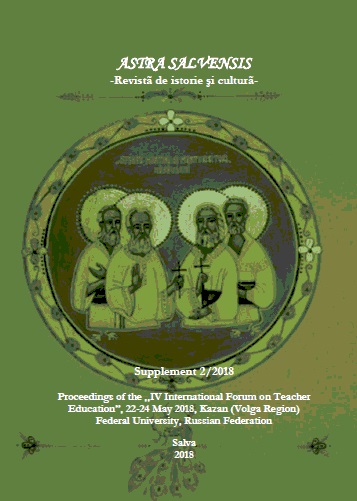ETHICS IN THE LIGHT OF SUBJECTIVITY – KIERKEGAARD AND LEVINAS
ETHICS IN THE LIGHT OF SUBJECTIVITY – KIERKEGAARD AND LEVINAS
Author(s): Tibor Máhrik, Roman Kralik, Igor TavillaSubject(s): Philosophy, Social Sciences
Published by: Asociaţiunea Transilvană pentru Literatura Română şi Cultura Poporului Român - ASTRA
Keywords: Kierkegaard; Levinas; subjectivity; ethics;
Summary/Abstract: The focus of this study is to examine the fundaments of ethical thought in two prominent personalities of the modern history of European philosophy – S. Kierkegaard and E. Levinas. In the case of Levinas, it is his concept of transcendence that we can perceive as the foundation of his grasp and interpretation of ethics. In the case of Kierkegaard it concerns the key term of truth, which forms the basis for his reflections on subjectivity in relation to ethics. The dialectics of the relationship between transcendence and subjectivity thus represents a complex where the two authors both meet and diverge. Despite being firmly founded on the Judeo-Christian understanding of the world and of man, which actualizes his freedom and responsibility before ―the face of God,‖ these two thinkers diverge in their understanding of ethical relations. The goal of this study is to gain a deeper understanding of said dynamics. We operate with the thesis that they both believe that an individual‘s existence takes place in the teleological anticipation of the future. However, while Kierkegaard believes that the inner source of existential movement is an individual‘s relation to truth, Levinas considers invitation/revelation of the Other to be the primary source of such movement. Both concepts are prophetically inspiring and operate with essential reflections on the nature of ethics, which constitute a significant contribution to the contemporary discourse in the field of metaethics. The present age is essentially a sensible, reflecting age, devoid of passion, flaring up in superficial, short-lived enthusiasm and prudentially relaxing in indolence. In contrast to the age of revolution, which took action, the present age is an age of publicity, the age of miscellaneous announcements: nothing happens but still there is instant publicity. The age of great and good actions is past; the present age is the age of anticipation. No one is willing to be satisfied with doing something specific; everyone wants to luxuriate in the daydream that he at least may discover a new part of the world. Ours is an age of anticipation; even appreciative acknowledgment is accepted in advance.S. Kierkegaard. The leap from a means to an end, from the actual to the possible, from a palpable configuration to the telos it refers to or relates to or signifies, is the metaphysical thrust that opens a field, that reveals a world. It is constitutive of our existence as being-in-the world, it makes our existence an ecstatic propulsion. Our being does not close in upon itself and sustain itself, like a substance; it continually projects itself out of itself, simultaneously into the potentialities it elaborates for itself and into a world of possibilities that answer to them. E. Levinas.
Journal: Astra Salvensis - revista de istorie si cultura
- Issue Year: VI/2018
- Issue No: Supp 2
- Page Range: 488-501
- Page Count: 14
- Language: English

